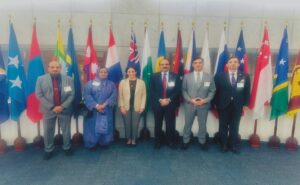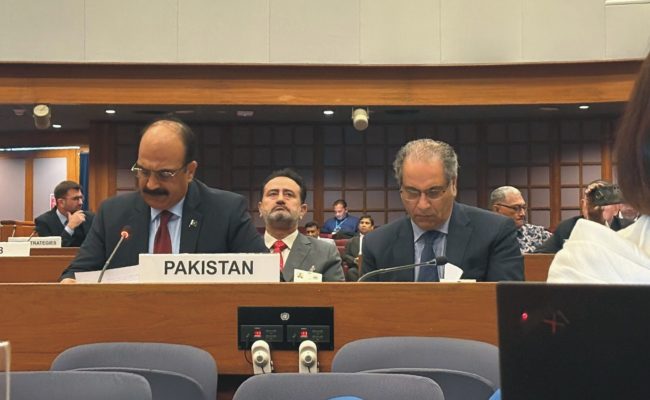The World Ambassador (TWA)
________
Islamabad, June 28, 2025 – Pakistan showcased its progress and future roadmap for civil registration at the third Ministerial Conference on Civil Registration and Vital Statistics (CRVS) in Asia and the Pacific, held in Bangkok.
Organized by the United Nations Economic and Social Commission for Asia and the Pacific (UNESCAP) and supported by UNFPA and other partners, the conference brought together countries to review developments under the “Getting Everyone in the Picture” initiative and reaffirm the goal of achieving universal civil registration by 2030.

The Pakistani delegation was led by Chairman NADRA and Registrar General, Lt Gen Muhammad Munir Afsar, and coordinated by the Ministry of Planning, Development and Special Initiatives. Delegates included senior officials from NADRA, the Ministry of Interior, the Ministry of Planning, and the Sindh Health Department.
Pakistan shared several key achievements from the past decade:
-
97% of the adult population registered via NADRA’s biometric ID system.
-
Digital registration of births, deaths, marriages, and divorces across 165+ districts.
-
Deployment of mobile registration teams in remote areas of Balochistan, Sindh, AJK, and Gilgit-Baltistan.
Speakers emphasized that civil registration is more than administrative documentation—it is foundational for governance, development planning, and citizen rights. The delegation called for enhanced coordination between federal and provincial institutions to strengthen the CRVS system.
Pakistan also presented its CRVS Inception Plan, which outlines model districts, digital registration platforms, and improved linkages between hospitals, local governments, and NADRA. The plan is supported by a national policy emphasizing biometric ID systems and digital tools for event notification.
NADRA spotlighted its recent innovations, including the Digital ID initiative and the Pak ID mobile app, which enables citizens to manage registrations through smartphones—making services more accessible nationwide.
Acknowledging challenges such as incomplete death registration and limited cause-of-death data, Pakistan welcomed the extension of the CRVS Decade to 2030. The delegation expressed gratitude to UNFPA, UNICEF, and UNESCAP for their continued technical and strategic support in reforming laws, training personnel, and modernizing systems.
Looking ahead, Pakistan underscored the importance of building a fully digital registration ecosystem aligned with the upcoming register-based census, the national 5Es Framework, and the URAAN Pakistan initiative—all aimed at improving the reach and quality of digital public services.
Pakistan reaffirmed its commitment to ensuring that every life event is recorded and every citizen is counted, recognizing civil registration as a pillar of inclusive national development, public dignity, and data-driven governance.


